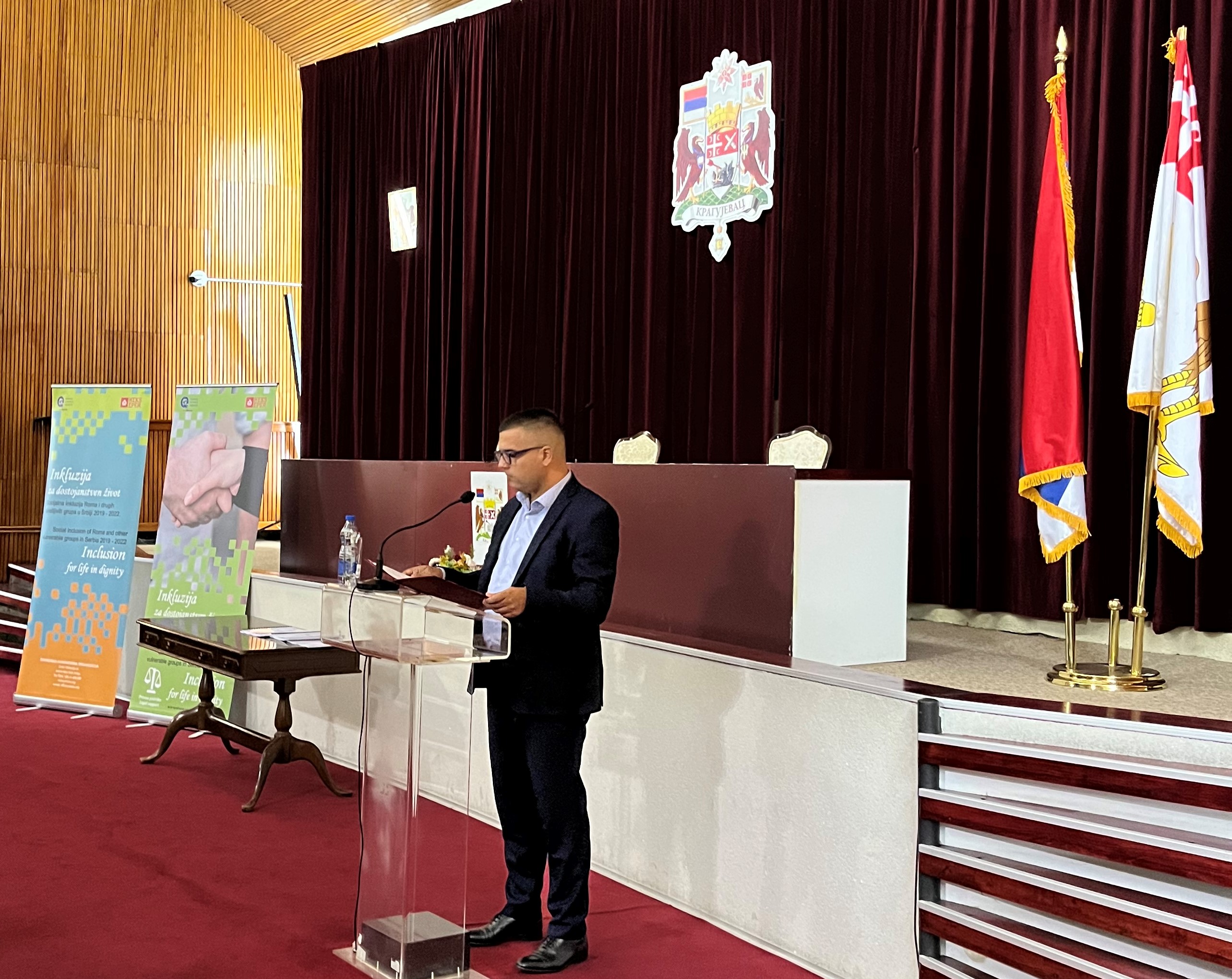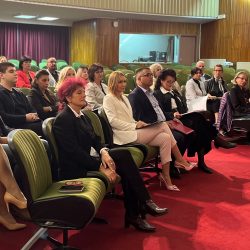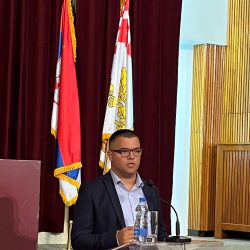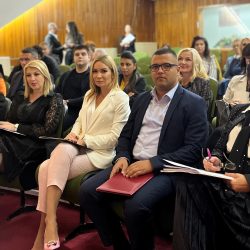
The State Secretary of MDULS, Stevan Gligorin, has attended the promotion of the Anti-Discrimination Code today in Kragujevac, intended for civil servants as an aid in their work, with the aim of protecting human rights and preventing discrimination.
The adoption of this code is the result of a four-year project collaboration between 11 Local Self-government Units in Serbia and the Ecumenical Humanitarian Organization from Novi Sad (EHO) and the HEKS/EPER organization from Switzerland, in order to improve the process of social inclusion of Roma and other vulnerable social groups.
In his opening address at the opening of the gathering, Gligorin has pointed out that the City of Kragujevac is the first local self-government in the country to adopt a document which prevents discrimination in public institutions and promotes a culture of equality.
“With the adoption of the Anti-Discrimination Code, which is intended for all employees in city administration, Kragujevac has become an example of good practice in respect of the prevention and fight against discrimination. This Code is adapted to the specific issues in Kragujevac and improves the anti-discrimination legal framework of our country,” Gligorin has said.
He has expressed his belief that other cities and municipalities in Serbia would follow the example of Kragujevac and work on adopting their Action Plans for the prevention of discrimination at the local level, similar to the Code which Kragujevac had adopted, but adjusted to the specifics of their respective environments.
Gligorin has also recalled the activities which MDULS, despite not being responsible for issues of equality, had carried out in the past two years as a form of support to Local Self-government Units in the prevention and fight against discrimination, especially when it comes to improving the position of marginalized categories of the population, primarily of the Roma population.
He has recalled that MDULS awards an annual award for the best municipal/city administrations in the field of equality and anti-discrimination. Also, MDULS, through long-term cooperation with UNHCR and the Protector of Citizens, is working on solving the issue of entering of nationals of Roma national minority into the Register of Births and reducing the risk of statelessness, with the goal of completely eradicating statelessness in Serbia by the end of 2024. Even during the COVID-19 pandemic, MDULS had, in cooperation with LSUs, tried to ensure that Roma settlements are not left without drinking water and electricity, that they are well-informed about the virus and understood the importance of prevention, in which it received support from the Crisis Staff, as well as from Roma mediators and coordinators.
“In order to ensure that no one is left out or forgotten in the immunization process, when the state acquired vaccines against the COVID-19 virus, we conducted an extensive field action and helped more than 18,000 Roma nationals to register for immunization and get vaccinated and, in cooperation with domestic and foreign partners, have managed to distribute over 20,000 family hygiene packages to the most vulnerable Roma families in the country,” Gligorin has said.
He has particularly stressed that MDULS actively cooperates with the Social Inclusion and Poverty Reduction Unit of the Government of the Republic of Serbia, which had paid special attention to professional development of civil servants in the field of human rights protection, as well as to a special training programme for young Roma men and women who have attained higher education and are not employed in the public administration, with the aim of improving their professional competences as a prerequisite for better employability in the administration.
“The “Barvalipe” programme was implemented in the previous year by our National Academy for Public Administration, by forming a multidisciplinary training package for members of the highly educated Roma population, in cooperation with the Roma NGO sector. During the last year, in just six months, a total of 41 participants have successfully completed this programme, who, I firmly believe, will find employment in the public administration in the future,” Gligorin has concluded.
Photo gallery:






